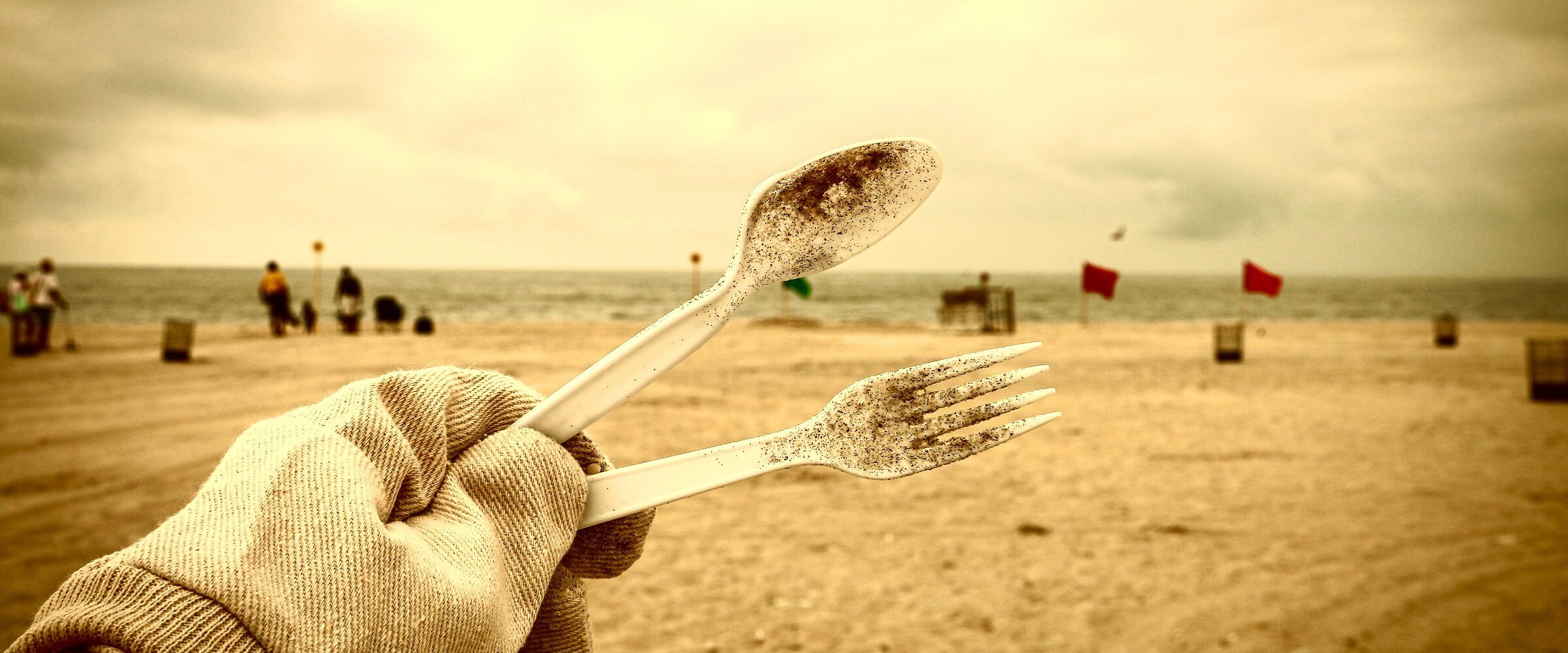
Skip the Stuff in New Jersey
Help us reduce plastic pollution.
Surfrider’s two volunteer-led, New Jersey Chapters are determined to reduce plastic pollution in New Jersey by passing a statewide “Skip the Stuff” bill (S3195).
This bill seeks to change the expectations of restaurant takeout and delivery food customers. Instead of expecting to receive extra items like utensils and condiments, under Skip the Stuff, customers will expect to not receive those items unless they specifically request them.
In addition to protecting our ocean against plastic pollution, this bill will save restaurants money, as nationally, restaurants spend about $20 billion per year on such items (1). It also includes a requirement for restaurants that seat more than 50 customers. Those restaurants would be required to only serve their on-site guests using reusable foodware, another cost saving measure that can net thousands per year in savings (2).
The New Jersey Chapters of the Surfrider Foundation do a lot of beach cleanups, and the single use items addressed in this bill are always some of the most commonly found.
Reducing plastic waste is an environmental justice issue. Nearly 80% of waste incinerators are located in low-income communities and/or communities of color and the pollutants produced by incinerating plastic have toxic effects when inhaled (3). Waste management infrastructure is also disproportionately located in these communities.
Plastic litter exacerbates the plastic pollution human health crisis; plastic particles have been found in drinking water, food, human bodies, and in practically every inch of the globe. Plastic is a petroleum based product which degrades very slowly in the natural environment, contains toxins, and contributes to the climate crisis.
This bill also honors customer choice. Nearly all – 98% – of restaurant takeout and delivery orders are eaten at home or in an office, where reusable utensils are available, and preferred (4). Every New Jersey resident has a drawer crammed with plastic utensils, chopsticks, and ketchup and mustard packets, which are often included with a meal, even when specifically requested not to be.
Join us and ask your elected official to support this bill! Take a couple minutes and send them a message, asking them to reduce the harm plastic pollution perpetuates on our environment, frontline communities and human health.
1-Moss and Grousset. The Dirty Truth about Disposable Foodware. The Overbrook Foundation. February 2020. Available at: www.mossandmollusk.com/the-dirty-truth
2- Surfrider Foundation. Ocean Friendly Foodware Guide 2.0. Available at: 20811975.fs1.hubspotusercontent-na1.net/hubfs/20811975/Ocean-Friendly-Foodware-Guide_012924.pdf
3- Global Alliance for Incinerator Alternatives (GAIA) and the New School. US Municipal Solid Waste Incinerators: An Industry in Decline. May 2019. Available at: www.no-burn.org/u-s-municipal-solid-waste-incinerators-an-industry-in-decline/
4- McKinsey & Company. The changing market for food delivery. 2016. Available at: www.mckinsey.com/industries/technology-media-and-telecommunications/our-insights/the-changing-market-for-food-delivery
